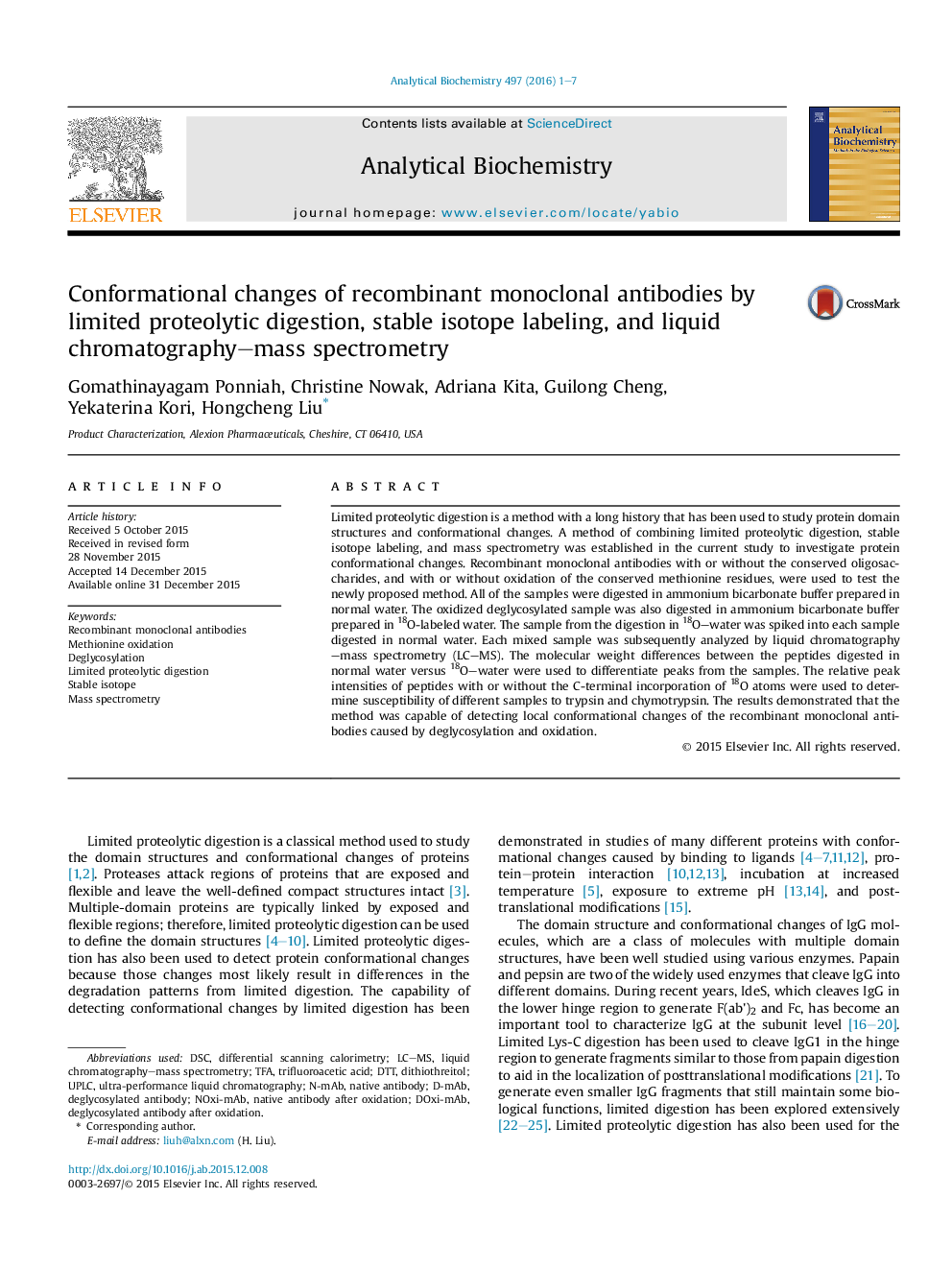| Article ID | Journal | Published Year | Pages | File Type |
|---|---|---|---|---|
| 1173052 | Analytical Biochemistry | 2016 | 7 Pages |
Limited proteolytic digestion is a method with a long history that has been used to study protein domain structures and conformational changes. A method of combining limited proteolytic digestion, stable isotope labeling, and mass spectrometry was established in the current study to investigate protein conformational changes. Recombinant monoclonal antibodies with or without the conserved oligosaccharides, and with or without oxidation of the conserved methionine residues, were used to test the newly proposed method. All of the samples were digested in ammonium bicarbonate buffer prepared in normal water. The oxidized deglycosylated sample was also digested in ammonium bicarbonate buffer prepared in 18O-labeled water. The sample from the digestion in 18O–water was spiked into each sample digested in normal water. Each mixed sample was subsequently analyzed by liquid chromatography–mass spectrometry (LC–MS). The molecular weight differences between the peptides digested in normal water versus 18O–water were used to differentiate peaks from the samples. The relative peak intensities of peptides with or without the C-terminal incorporation of 18O atoms were used to determine susceptibility of different samples to trypsin and chymotrypsin. The results demonstrated that the method was capable of detecting local conformational changes of the recombinant monoclonal antibodies caused by deglycosylation and oxidation.
